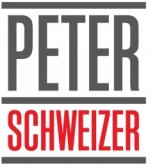New York Times: “Special Political Action Committees Spent Money at Resorts, Book Says”
NYT: “Special PACs Spent Money at Resorts, Book Says”
Special PACs Spent Money at Resorts, Book Says
Published: October 21, 2013
“WASHINGTON — A new book from a conservative advocate of tighter campaign finance regulations seeks to draw attention to a number of questionable but legal fund-raising activities — some potentially damaging, others certainly embarrassing — that could prove uncomfortable for some on Capitol Hill.
The author is Peter Schweizer, afellow at Stanford University’s Hoover Institution, whose last book focused on how members of both parties enriched themselves by trading stock based on information they obtained by virtue of their positions in Congress. The book — and the news coverage of it — helped lead to the Stock Act, which banned insider trading for representatives and senators but stopped far short of the systemic changes advocates like Mr. Schweizer said were necessary.
Mr. Schweizer hopes his new book, titled “Extortion,” will help push Congress to address loopholes in the campaign finance system, including banning “Leadership PACs,” which allow politicians to spend and solicit money without many of the restrictions they face when using their dedicated campaign committees.
These groups, Mr. Schweizer argues, have essentially become slush funds that enable lavish lifestyles while they exist ostensibly to help members of Congress finance their own campaigns and help political allies.
The book details the extravagant expenses of Senator Saxby Chambliss, Republican of Georgia, for instance, whose leadership PAC spent $10,000 on golf at Pebble Beach, nearly $27,000 at Ruth’s Chris Steakhouse, and $107,752 at the exclusive Breakers resort in Palm Beach, Fla. The amount Mr. Chambliss spent at the Breakers in the 2012 election cycle, the book reports, is three times what the senator gave to the National Republican Senatorial Committee during the same period.
Senator Roy Blunt, Republican of Missouri, racked up $65,000 in expenses during the 2012 cycle at a resort on South Carolina’s exclusive Kiawah Island, the book says. That was more than he transferred to his party’s senatorial committee, despite raising $1.1 million.
A spokeswoman for Mr. Chambliss said that every fund-raiser and expenditure was documented and reported according to the law, and that he gave the maximum allowed to his colleagues. Mr. Blunt’s office did not respond to a request for comment.
Democrats come out looking equally profligate. The book points out that Representative Charles B. Rangel of New York used his leadership PAC to pay for a painting of himself that cost $64,500. Representative Rosa L. DeLauro of Connecticut used hers to pay for catered parties at her home several times a month.
The book also seeks to draw attention to the influence that businesses have over elected officials, which has become a galvanizing cause for conservatives like Mr. Schweizer and Tea Party activists, whose brand of politics thrives on the tension of outsiders working against a system they believe is corrupted by insider interests.
Mr. Schweizer’s work, in addition to being picked up by more mainstream news media like CBS’s “60 Minutes,” receives considerable attention on conservative Web sites like Daily Caller and Breitbart, where Mr. Schweizer is an editor at large.”
